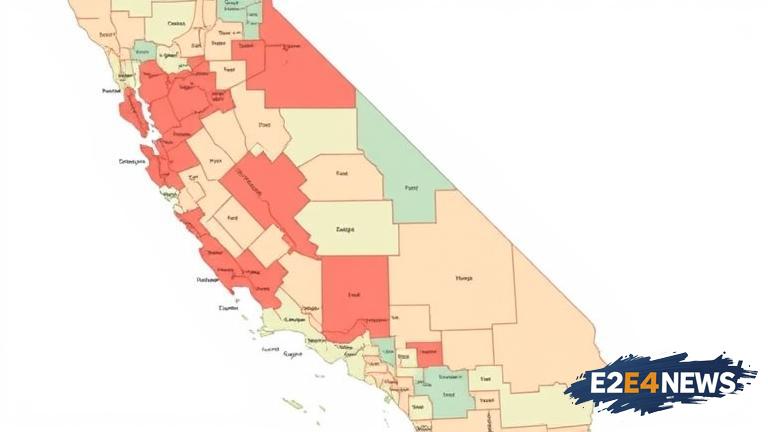The Republican Party has filed a second lawsuit against the state of California, challenging the newly drawn redistricting maps. The lawsuit, filed in the US District Court for the Eastern District of California, alleges that the maps are a result of partisan gerrymandering and violate the Voting Rights Act. The plaintiffs argue that the maps were drawn to favor Democratic candidates and disenfranchise Republican voters. The lawsuit claims that the California Citizens Redistricting Commission, which was responsible for drawing the maps, failed to follow the proper procedures and ignored the input of Republican voters. The commission, which was established by a voter-approved ballot initiative in 2008, is composed of 14 members, with five Democrats, five Republicans, and four members from neither party. The lawsuit alleges that the commission’s Democratic members dominated the process and drew the maps to maximize Democratic gains. The plaintiffs point to the fact that the new maps create several safe Democratic seats, while eliminating several competitive districts. The lawsuit also alleges that the maps violate the Voting Rights Act by reducing the number of majority-minority districts. The plaintiffs argue that the commission failed to consider the impact of the maps on minority voters and instead prioritized partisan gain. The lawsuit seeks to have the maps thrown out and replaced with new ones that are drawn in a fair and impartial manner. The case is likely to be closely watched, as it has the potential to impact the balance of power in the US House of Representatives. California is a crucial state in the battle for control of the House, with several competitive districts that could tip the balance in favor of either party. The lawsuit is the second challenge to the California redistricting maps, with a previous lawsuit filed by a group of Republican voters. The previous lawsuit was dismissed by a federal judge, but the plaintiffs have appealed the decision. The new lawsuit is likely to face a similar fate, as the courts have generally been reluctant to intervene in the redistricting process. However, the plaintiffs are hoping that the court will take a closer look at the maps and consider the allegations of partisan gerrymandering. The case is also likely to be influenced by the US Supreme Court’s decision in the Rucho v. Common Cause case, which held that federal courts do not have the authority to consider claims of partisan gerrymandering. Despite this decision, the plaintiffs are arguing that the California maps are so egregious that they violate the Voting Rights Act and the US Constitution. The lawsuit is a sign of the intense partisan battles that are being fought over redistricting, with both parties seeking to gain an advantage in the upcoming elections. The case is also a reminder of the importance of fair and impartial redistricting, and the need for the courts to ensure that the process is not abused for partisan gain. The outcome of the lawsuit is uncertain, but it is likely to have significant implications for the balance of power in California and the US House of Representatives. The plaintiffs are seeking a speedy resolution to the case, with the goal of having new maps in place before the 2022 elections. The defendants, on the other hand, are arguing that the maps are fair and impartial, and that the lawsuit is without merit. The case is likely to be decided in the coming months, with the possibility of appeals to higher courts. The lawsuit is a complex and contentious issue, with both sides presenting strong arguments. The court will need to carefully consider the evidence and the law before making a decision. The outcome of the case will have significant implications for the future of redistricting in California and the US, and will be closely watched by politicians, voters, and scholars. The case is a reminder of the importance of fair and impartial redistricting, and the need for the courts to ensure that the process is not abused for partisan gain. The lawsuit is a sign of the intense partisan battles that are being fought over redistricting, with both parties seeking to gain an advantage in the upcoming elections.
